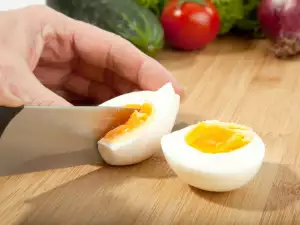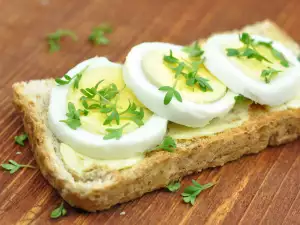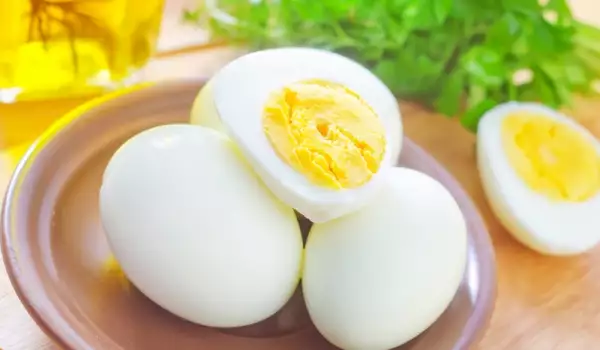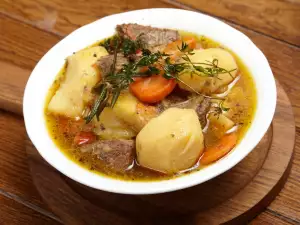Eggs are a universal product. Each one of us consumes them on a weekly basis in one form or another. And even though they are so well ingrained in cuisines throughout the world, not everyone knows all of the intricacies when it comes to preparing them.
Boiling. There is hardly a person that hasn't boiled eggs. Often however, things do not turn out as we had imagined. Here's why.
Often during boiling, eggs crack. To avoid this, do not boil them right after taking them out of the refrigerator. The maxim is - cold eggs placed in hot water will inevitably crack. Before putting them to boil, it is good to wash the shells of the eggs thoroughly.
The surest way to avoid over-boiling is to use a timer. When boiled for extended periods they lose nutrients, the yolks darken and the whites become like rubber. Bear in mind that if the eggs are very fresh - 4 days or less, you must add about 30 more seconds to the boiling time.

Some prefer their eggs soft-boiled. These, however, are not recommended for consumption by children, pregnant women, elder people or those recovering from a serious illness. To soft-boil eggs, place them in a pot, pour in cold water and put on high heat. Once the water comes to a boil, lower the heat. Boil:
- 3 min. - for a true soft-boiled egg;
- 4 min. - for a hard egg white and a runny yolk;
- 5 min. - for a hard egg white and boiled yolk with a bright yellow semi-runny center.

If you are a fan of hard-boiled eggs, place them in the pot and pour in cold water. Once the water comes to a boil, lower the heat and boil:
- 6 min. - for a slightly runny center of the egg yolk;
- 8 min. - for completely boiled eggs.
When removing the eggs from the heat, it is necessary to put them in cold water. To start off, put them under running water for 1 min, then in a pot with cold water until completely cooled. If you do not cool the eggs quickly, they will continue to cook and it is possible to overcook them.
And here are a few other tips:
If you are boiling a large number of eggs, place them in a metal wire basket. This way, you will be able to take them out more easily and quickly.
Always boil eggs in a small container. If placed in a large container, they will bump into each other after the water boils and can easily crack. The boiling itself must be done on low heat.
Try not to boil eggs that are completely fresh. Removing the shells is exceptionally hard, since the egg white sticks to the shell. Eggs that are most suitable for boiling are 3-10 days old.
To avoid cracking during boiling, it is good to add salt to the water. To reduce the inner pressure of the eggs, you can pierce the bottoms with a needle.




















Comments